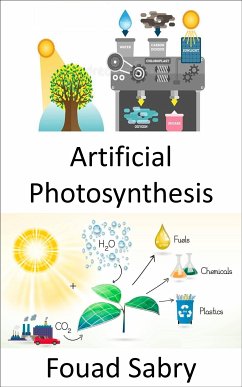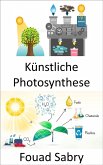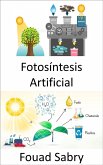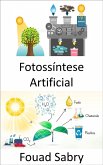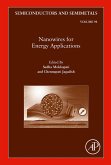What Is Artificial Photosynthesis
Synthetic photosynthesis is a chemical process that replicates the natural process of photosynthesis by transforming sunlight, water, and carbon dioxide into carbohydrates and oxygen. This process is also known as artificial photosynthesis. The process of catching and storing the energy from sunlight in the chemical bonds of a fuel is generally referred to as "artificial photosynthesis," and the word is usually used interchangeably with the phrase. Photocatalytic water splitting, often known as artificial photosynthesis, is the process of converting water into hydrogen and oxygen by the use of light. Another approach that has been researched to duplicate the natural process of carbon fixation is called light-driven carbon dioxide reduction.
How You Will Benefit
(I) Insights, and validations about the following topics:
Chapter 1: Artificial photosynthesis
Chapter 2: Hydrogen
Chapter 3: Photohydrogen
Chapter 4: Photoelectrochemical cell
Chapter 5: Water splitting
Chapter 6: Photocatalysis
Chapter 7: Hydrogenase
Chapter 8: Solar chemical
Chapter 9: Microbial metabolism
Chapter 10: Hydrogen production
Chapter 11: Biohydrogen
Chapter 12: Oxygen evolution
Chapter 13: Dioxygen in biological reactions
Chapter 14: Enzymatic biofuel cell
Chapter 15: Daniel G. Nocera
Chapter 16: Photocatalytic water splitting
Chapter 17: Craig L. Hill
Chapter 18: Solar fuel
Chapter 19: Photogeochemistry
Chapter 20: Water oxidation catalysis
Chapter 21: Bionic Leaf
(II) Answering the public top questions about artificial photosynthesis.
(III) Real world examples for the usage of artificial photosynthesis in many fields.
(IV) 17 appendices to explain, briefly, 266 emerging technologies in each industry to have 360-degree full understanding of artificial photosynthesis' technologies.
Who This Book Is For
Professionals, undergraduate and graduate students, enthusiasts, hobbyists, and those who want to go beyond basic knowledge or information for any kind of artificial photosynthesis.
Synthetic photosynthesis is a chemical process that replicates the natural process of photosynthesis by transforming sunlight, water, and carbon dioxide into carbohydrates and oxygen. This process is also known as artificial photosynthesis. The process of catching and storing the energy from sunlight in the chemical bonds of a fuel is generally referred to as "artificial photosynthesis," and the word is usually used interchangeably with the phrase. Photocatalytic water splitting, often known as artificial photosynthesis, is the process of converting water into hydrogen and oxygen by the use of light. Another approach that has been researched to duplicate the natural process of carbon fixation is called light-driven carbon dioxide reduction.
How You Will Benefit
(I) Insights, and validations about the following topics:
Chapter 1: Artificial photosynthesis
Chapter 2: Hydrogen
Chapter 3: Photohydrogen
Chapter 4: Photoelectrochemical cell
Chapter 5: Water splitting
Chapter 6: Photocatalysis
Chapter 7: Hydrogenase
Chapter 8: Solar chemical
Chapter 9: Microbial metabolism
Chapter 10: Hydrogen production
Chapter 11: Biohydrogen
Chapter 12: Oxygen evolution
Chapter 13: Dioxygen in biological reactions
Chapter 14: Enzymatic biofuel cell
Chapter 15: Daniel G. Nocera
Chapter 16: Photocatalytic water splitting
Chapter 17: Craig L. Hill
Chapter 18: Solar fuel
Chapter 19: Photogeochemistry
Chapter 20: Water oxidation catalysis
Chapter 21: Bionic Leaf
(II) Answering the public top questions about artificial photosynthesis.
(III) Real world examples for the usage of artificial photosynthesis in many fields.
(IV) 17 appendices to explain, briefly, 266 emerging technologies in each industry to have 360-degree full understanding of artificial photosynthesis' technologies.
Who This Book Is For
Professionals, undergraduate and graduate students, enthusiasts, hobbyists, and those who want to go beyond basic knowledge or information for any kind of artificial photosynthesis.
Dieser Download kann aus rechtlichen Gründen nur mit Rechnungsadresse in A, B, BG, CY, CZ, D, DK, EW, E, FIN, F, GR, H, IRL, I, LT, L, LR, M, NL, PL, P, R, S, SLO, SK ausgeliefert werden.

